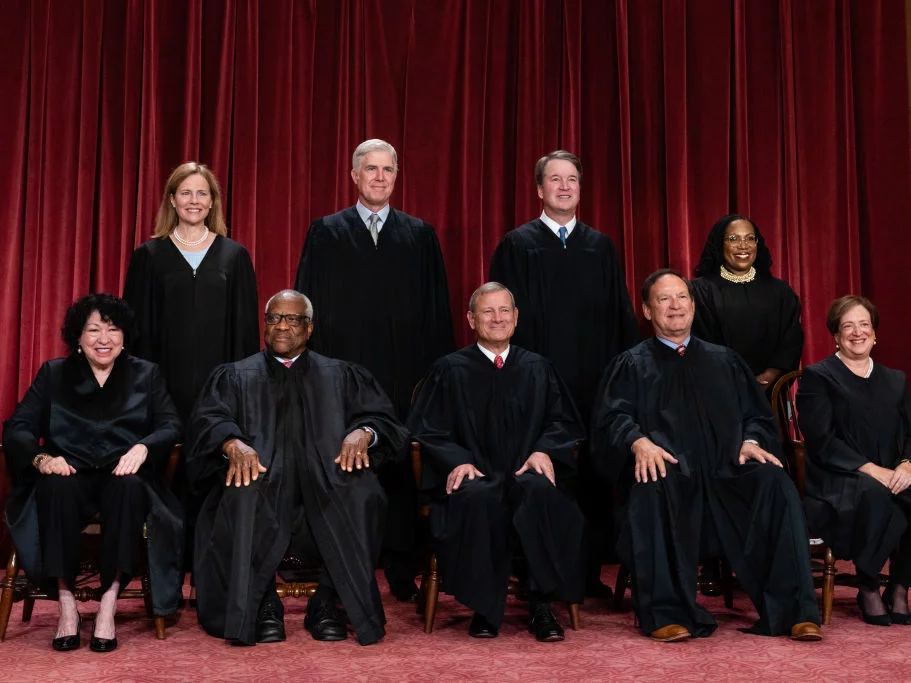A statement by The Diversity Movement
On Oct. 31, lawyers from two elite universities argued before the Supreme Court, insisting that diversity on campus is essential, and the only way to achieve a culturally mixed student body is by considering race in the admissions process. But comments from the justices indicated that they weren’t swayed by arguments that championed diversity as a goal. Now, the Supreme Court seems poised to end affirmative action in higher education, a decision that will likely undermine diversity efforts at elite universities and eventually in the workplace.

Without race-conscious admissions, campus diversity will decrease at the two schools involved – Harvard University and the University of North Carolina at Chapel Hill – and at elite universities nationwide. This expected decision will be just the latest among many ways that qualified students from marginalized communities have been systematically excluded from attaining higher education.
Because White students have been favored historically, underrepresented students are often first-generation college students whose parents or guardians don’t have the means or expertise to help them navigate the admissions and financial aid process. Because of this and other remaining biases in the university admissions, recruiting, and scholarship systems, affirmative action is necessary to merely achieve equal opportunity.
The decision to end race-based considerations in university admissions would also set a far-reaching precedent. Workplace diversity may be next, as a majority of the justices seem likely to rule in favor of ending all affirmative action programs. Even now, the court’s attitude has promoted an impression that efforts to increase diversity, equity, and inclusion (DEI) – whether at the university or in the workplace – aren’t needed anymore.
We couldn’t disagree more.
Equity and Inclusion Benefit Society
Even though the Supreme Court doesn’t consider affirmative action a remedy for systemic racism, that’s why the policy was created. It doesn’t give historically marginalized groups an unfair advantage; it aims to correct past discrimination that still prevents people from oppressed communities from having equal opportunities.
In education and in business, prioritizing diversity, equity, and inclusion remains a powerful weapon against inequity. Supplier diversity, a key DEI business strategy, helps narrow the racial wealth gap by helping businesses owned by diverse founders succeed. Nationally, the median net worth of Black and Latine business owners is more than ten times that of their peers who don’t own a business. Not only is business ownership a traditional path to greater wealth, but diverse businesses also employ more folks from underrepresented groups.
Race-conscious policies aren’t perfect, but universities and businesses should be free to use these tools to support their missions and values. If a school’s mission is to contribute to the public good and promote social mobility, it should be allowed to consider all aspects of its students’ identity. The same goes for businesses that make DEI a cornerstone of their values statements.
Diverse Businesses Thrives
After working with more than 100 clients and partners, we know that companies don’t become more diverse, equitable, or inclusive unless they are intentional about creating and implementing strategic DEI initiatives. Those strategies have to consider all aspects of an employee’s identity – including race.
Justice Clarence Thomas might have “no idea” what diversity means, but the people we work with certainly do. They’ve seen the real impact of DEI on business growth, employee retention, and customer service. Diversity, equity, and inclusion isn’t an esoteric concept or a political lightning rod. DEI is a business strategy, and we see its benefits in the workplace every day.
At Smith Anderson, one of the largest law firms in North Carolina, DEI efforts help the firm attract new clients and retain existing ones, because they know that varied perspectives make legal teams more effective. “If you get all those different ways of looking at a problem or tackling an issue, the end result is just going to be better. That’s a huge plus,” says Kerry Shad, attorney and partner at the firm.
Danielle David, Chief People Officer at CRB, says the company’s focus on diversity has made it a better place to work. “We’ve attracted people because they see that this is a place where DEI is top of mind,” she says. “And we’ve retained some amazing people as well.”
At the global retailer Comme des Garçons/Dover Street Market, the company’s annual employee survey showed that DEI efforts improved employee satisfaction. These happy employees are better able to serve customers, says Kerry Andolina, Director of Human Resources.
“The direct impact of them feeling comfortable, wanting to come to work, feeling like they have allies here within the company, they’re then ultimately putting their best foot forward to our clients and our vendors. That impacts our sales and how well we do.”
These anecdotes are backed up by empirical evidence. According to McKinsey and Company, organizations with the most culturally and racially diverse executive teams are 36% more likely to outperform their peers with less diverse leadership. Diverse companies are innovative, deriving a greater share of their revenue from new products and services. A Deloitte study found that businesses with an inclusive workplace culture were more profitable.
Diversity Gives Students a Global Mindset

A diverse student body is as much a learning tool as the university’s books, laboratories, and classrooms. Students need to hear viewpoints unlike their own. Seeing the world through others’ eyes and hearing diverse opinions enable these young people to develop the intellectual curiosity, cultural intelligence, and critical thinking necessary to solve society’s pressing challenges today and in the future.
“We prepare [students] for our global society by providing a rich experience where they learn to think critically, embrace differences, and forge common ground — qualities we know employers need,” writes UNC-CH Chancellor Kevin Guskiewicz. “Our country’s future depends on these students.”
His argument is supported by 35 former senior military leaders, who “called the diversity of our nation and our armed forces critical for mission effectiveness in addressing challenges around the world,” Guskiewicz continues.
There is also a personal cost to ending race-conscious policies at universities. Talented Black, Latine, and Indigenous students will find that top-tier colleges will be even further out of reach. At the University of California and the University of Michigan, where race-based admissions policies were halted more than 15 years ago, officials have struggled to attract students from historically marginalized groups. In California, enrollment of underrepresented students at the state’s top institutions dropped by 50% and earnings fell for Black and Hispanic graduates.
An amicus brief filed in the current Supreme Court cases from the University of Michigan stated: “Despite persistent, vigorous and varied efforts to increase student body racial and ethnic diversity by race-neutral means, the admission and enrollment of underrepresented minority students have fallen precipitously” since the end of affirmative action.
The reality is that diversity doesn’t happen organically, because people tend to be uncomfortable interacting with those unlike themselves. Given the choice, we surround ourselves with people who are similar to us. We need reminders that comfort isn’t always the best objective. At the university, race-conscious admissions policies are one of those reminders. In the workplace, DEI policies are other reminders. If these reminders are taken away, our whole society will be less dynamic, less colorful, and less innovative. This is not the future we need, no matter how comfortable it might seem.
To learn more about our clients and the benefits they’ve seen from DEI, download our latest Client Insights Report. To boost your own efforts, join our DEI Navigator subscription service to receive custom, expert, one-on-one guidance, whenever and wherever you need it.
Connect with our team to get started.






